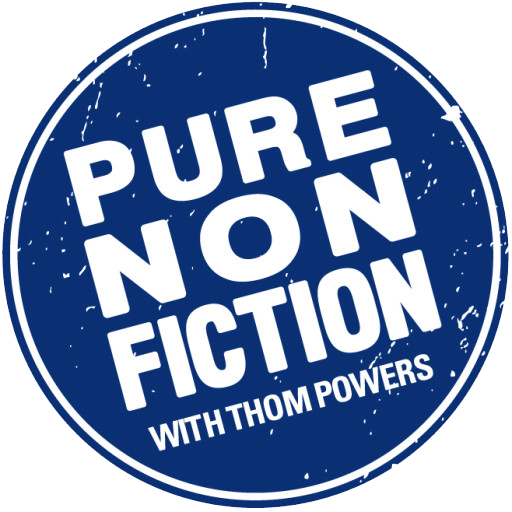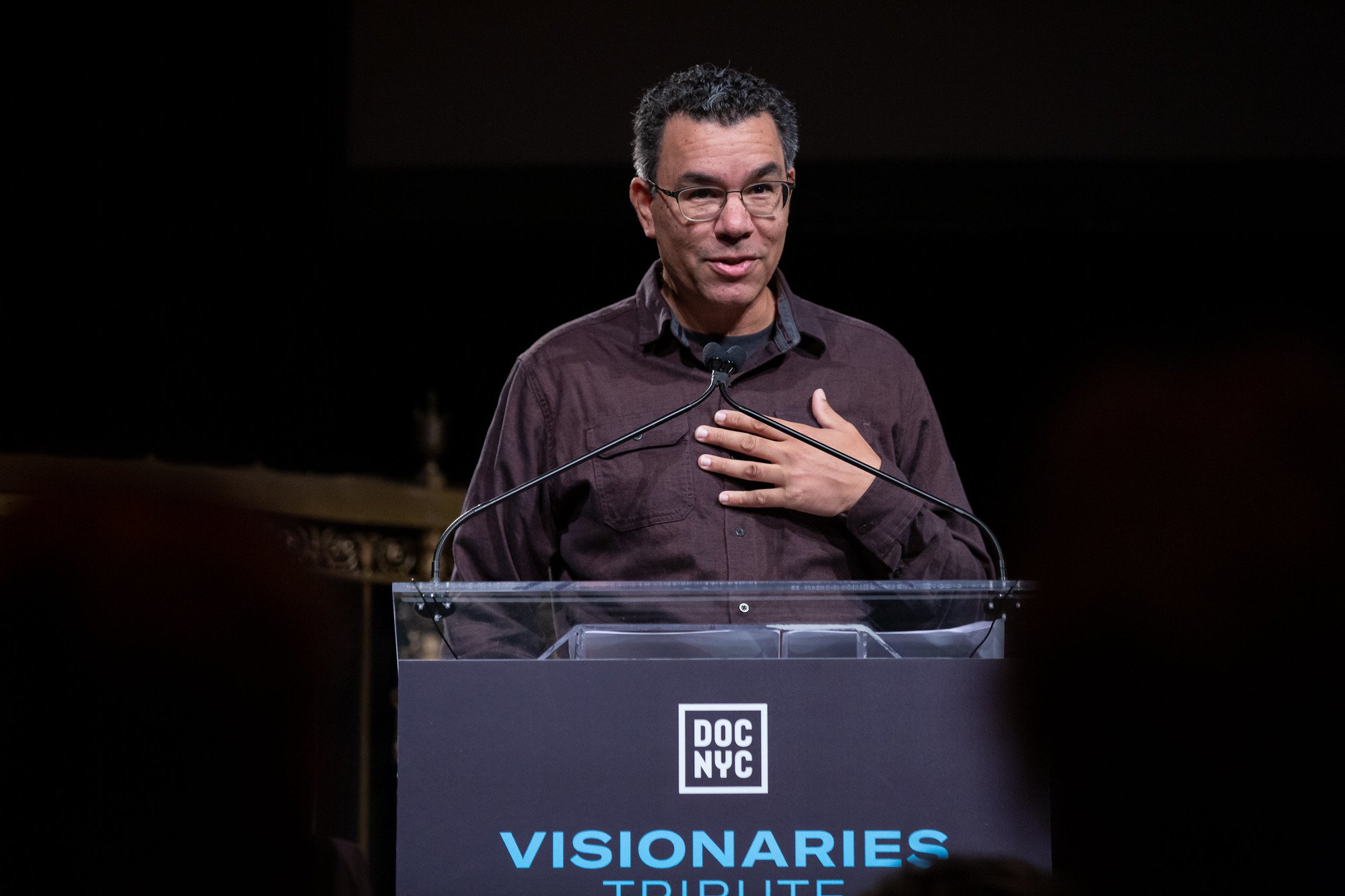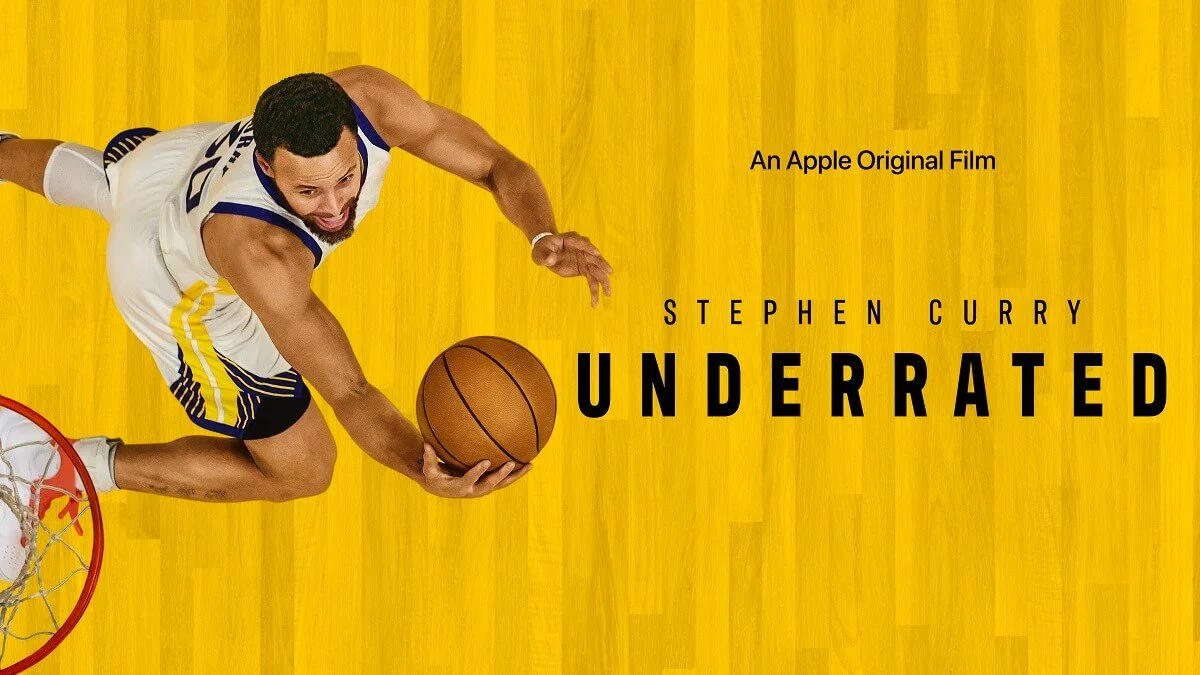J.D. Marlow on “Stephen Curry: Underrated”
J.D. Marlow is the editor of Stephen Curry: Underrated that examines how the basketball star overcame low expectations playing for Davidson College and leading the Golden State Warriors.
Director Peter Nicks is known for his trilogy of observational films about city institutions in Oakland, California - The Waiting Room (on health care), The Force (on policing) and Homeroom (on high school). Marlow has also worked heavily on observational documentaries including One of Us and Love Fraud. This was the first time Nicks and Marlow were collaborating and the first that either had worked on a sports film.
The film is now streaming on Apple TV+. Marlow spoke to Pure Nonfiction host Thom Powers.
Powers: When I look at your credit history, you worked on four projects with Heidi Ewing and Rachel Grady amongst other directors. This was your first time working with Pete Nicks. Can you talk about the getting to know you process between an editor and a director?
Marlow: I had the strange experience of meeting Pete at Heidi and Rachel's office. I was finishing a film for them and he happened to be there. And like a week later I was on a Zoom with him talking about this Steph Curry project. It was completely random that I had met him the week before. But he's such a lovely guy. The thing that I noticed right away is how authentic he is and that’s so important in documentary. It’s especially important when you're doing a film about a celebrity like Stephen Curry.
That was the starting point for us, trying to push away the noise of making a celebrity movie, and find those kernels of authenticity. We were able to connect on that level. I think his background and the kind of verité films that he makes and the fact that I hadn't done a sports film before made it easier. We're trying to do something that's not just about the X's and O's. It was easy to talk with him about the bigger themes.
Powers: Did you come to this project as a basketball fan?
Marlow: I played basketball in grade school and in high school and I remember watching Steph Curry at Davidson casually. I had moved to New York in 2008, and I remember there was a game at the Garden that Davidson was going to play against West Virginia. I didn't go to basketball games very much, but we had just moved to the city and I said to my wife, “We got to go see this Davidson team. They just did this thing in the tournament and they're playing in the Garden. This guy, Steph Curry, he's supposed to be great.” So I dragged her to this basketball game that year and it was incredible. I just remember thinking, “This guy's going to be great. I don't know if people realize that.” So that was a touchstone for me.
Powers: At what point did you come on to the project? Can you talk about how the film’s structure was changing along the way?
Marlow: Honestly, it really wasn't clear to me when I started what we were making. That’s often the case with films, but this one especially. I found out much later that it had been designed as a film about his college career, but I felt a little slow on the uptake. We had a lot of verité with him and we were thinking about what that could be. Partly because that's where Pete's comfort zone is. They had started following Steph that season. At some point I was like, “I'm just going to start looking at this archive because I'm pretty sure we're making a film about his past as well.”
I felt very lucky on this project. A lot of times, even if you don't know what you're doing, you'll start to assemble a scene here or there with stuff that you've got in front of you. And I didn't really do that. I just watched stuff for like seven weeks. It felt like such a luxury in the moment but looking back was completely essential because it allowed me to get my head around what we had and didn't have. There were some things that we needed as it became clear what we should be doing.
Director Peter Nicks at the 2021 DOC NYC Visionaries Tribute. (Photo: Lou Aguilar)
Powers: What is that process of you looking at footage for seven weeks? How are you starting to organize so that it'll be most useful to you later on?
Marlow: I'm really big into markers and I have a whole system of how I mark things that helps my brain remember what was good. I was actually listening to an interview with the scripted editor, Timothy Good, who worked on the HBO show The Last of Us. He talked about the colors that he used for his markers. And it's so geeky, but it's very close to my heart.
There was an idea that came out of cutting a scene that I never used in the film. [The camera crew] had been following the Davidson team because Coach McKillop was a really big character in the story. The team had done a film session where they were watching the game they had played the day before. I cut the scene. It was never relevant for the movie, but it occurred to me later as I was getting into Steph's archive: this is sort of a film session for his life. The idea of how you play back that film - stop, start and talk about it - became a really big influence on how I started to cut those scenes. It’s totally not a relevant scene for the movie, but the bigger concept made its way into the movie.
Powers: You came on midway through the 2022 basketball season without any awareness that the Golden State Warriors were headed to a storybook season.
Marlow: That is absolutely correct. Sometime in April 2022, I had committed to just working on the archival portions of the story. I wrote out the beats. Pete and I talked about it and started to build that linearly. Then sometime in June the Golden State Warriors won an NBA championship. So this is going to become something in the story much more than it was before. Suddenly we started talking about how structurally we could look for the parallels between the past and the present.
Powers: Was that an easy transition to make or did you need to throw out material?
JD Marlow: There wasn't a lot of throwing out. In fact, it happened at a perfect time for our process because I was really just starting to find my way into an assembly of the archival beats. We had this assembly of stuff that told that past tense story. There were certain beats that I thought, we've got to leave and come back. [The 2022 playoffs] gave us the perfect excuse to find more interesting ways of doing that. Sometimes the documentary gods do not smile upon you. This time they were.
Powers: In many sports films, there will be a build up to a big game, whether it's a fiction film or documentary. And in the story of Steph Curry, there are a lot of wins and losses. I wonder how you manage to cover those highs and lows when they're so plentiful.
Marlow: This speaks to your earlier question about how we got our arms around the material. One of the first things that I did with my assistant editor, Rebeccah Pope, was we had a lot of college games. Not all of them were interesting. Not all of them were relevant. We didn't really know how we were going to treat all of it exactly, but we had it. So we made a timeline on paper. Then we made a bin and everything was sorted by who they played against, where it was, what the date was, whether they won or lost. We had a master schedule of three years of college basketball games that Steph played in.
Now we can decide how we're going to tell that story because not everything is interesting. We're not going to get into every game. In fact, the year that Davidson went so far in the tournament, they won like 20 games in a row. That became a montage because it had to be. I was interested in the losses even more than the wins.
His debut game, he makes all those turnovers and looks like a chicken with his head cut off. It's amazing that that happened and he bounced back so quickly. If he had been in any other school, he may not have been playing in the first place. If that had happened at Duke or somewhere else, he'd be done. End of the story. But at Davidson he was around people that believed in him and that were counting on him to be what they thought he could be.
Even when they lose to Kansas after that big run, that's more interesting to me than if they had won the whole thing. Just the emotion of it with his friend Jason Richards and that ride that they went on together.
Powers: You've talked about things that came together nicely. I wonder if there are aspects of the structure that you struggled over and how you overcame them.
Marlow: One of the biggest challenges - and it might not seem obvious - was the NCAA tournament run. For a couple of reasons. The first is that it's a lot of basketball games, and we're not going to gloss over any of them. But we can't just watch basketball games. They each have to have their own arc and their own feeling. But the first two games are very similar. They're almost the same game because Davidson fell behind and came back. So finding a way to give each their own identity was really hard.
Part of the challenge with those games is the archival. We didn't have a ton of ancillary material outside of the games. We had what they call “melts” which are string outs of shots that the broadcaster CBS kept of alternate angles. But I don't have raw footage from every camera angle to craft something fresh.
At one point we had a researcher come on to help kind of dig up whatever we could. I felt like there were stones we hadn't unturned. We found a student that had videos. I think it was the Wisconsin game in the student section. And you see Stephen’s mom and dad come up the stairs and the students say, “Hi, Mrs. Curry.” I'm like, Yes! I want more of that because, that's the moment you didn't see on TV. That's what I'm looking for. We did everything we could to blend everything we have in a way that felt fresh.
Powers: There's a sequence near the end when the Golden State Warriors are in the process of winning the NBA championship and you start cutting between Stephen Curry making shots in 2022, and then similar shots that he was making as a college student at Davidson. This sequence really ties together these two strands of the film in a virtuoso way. Can you talk about building that sequence?
Marlow: I'm glad you asked about that. It might not seem tricky, but it was actually a couple of weeks to figure out. The specific thing you're talking about with those match cuts between past and present was the happiest of accidents. I had been looking through material from the 2022 finals against the Celtics, and there's this shot of him in the corner taking a three pointer, but first he fakes and somebody runs past him. And I thought, gosh, that is so similar to that iconic moment from the 2008 Wisconsin game where he does the exact same thing.
I went back to that footage and I was messing around with it and I spliced it just in the middle of it to see how fluid that would look. It's kind of amazing. I texted it to Sean Havey and Allison Joy Gale, who were producers on the film. I was like, “Hey, guys, check this out. Isn't that wild?” And they were like, “Oh my God, we have to do this. We have to make this part of that sequence.” And I was like, “No, no, no, it's too much.”
I sat on it for a few weeks and then we were very close to the end and they were like, “Come on, we got to do it. We’ve got to find other shots where that happens.” We finally did it at the 11th hour and showed it to Pete and Apple. And it did exactly what you're saying. It tethered the story we were telling about Davidson and his formative years to the NBA championship. That became a huge solve for us.
Powers: Can you talk about finally seeing this film with an audience?
Marlow: Oddly enough, we didn't really do any test screenings with this. I wished we had. But it just didn't work out. So the first time I saw it really was at Sundance at the Eccles. And, my God, there's really not a better way. Steph is in the audience eating popcorn and everybody's excited. I got to chat with Coach McKillop. Watching any film in a room full of people is amazing. There's no replacement for that.
Powers: Can you talk about the oddness, as an editor, when you've spent a year or more in someone's life on a daily basis. You might feel closer to them than you to your own family members and then you meet the film subjects and they don't know you at all.
Marlow: Yeah, it's weird. I have to really be intentional about the first thing I say. I know, unfairly, a lot more about them than they realize. But they do not know me. I value that part of working on a documentary. It's not something you get in scripted. These are not actors. I hadn't met Stephen Curry before. He's a lovely human being. You feel like you're his friend the moment he says hi to you. There aren't too many people with that ability. I don't know what that is. He's a totally genuine human being. He said that he was grateful that we told this story the way we did. So that means a lot to me.
Join Our Newsletter!
Sign up today for free and stay up to date on all things Pure Nonfiction. Be the first to be notified of newly released podcast episodes, details of upcoming festivals and more. Sign Up Today!








